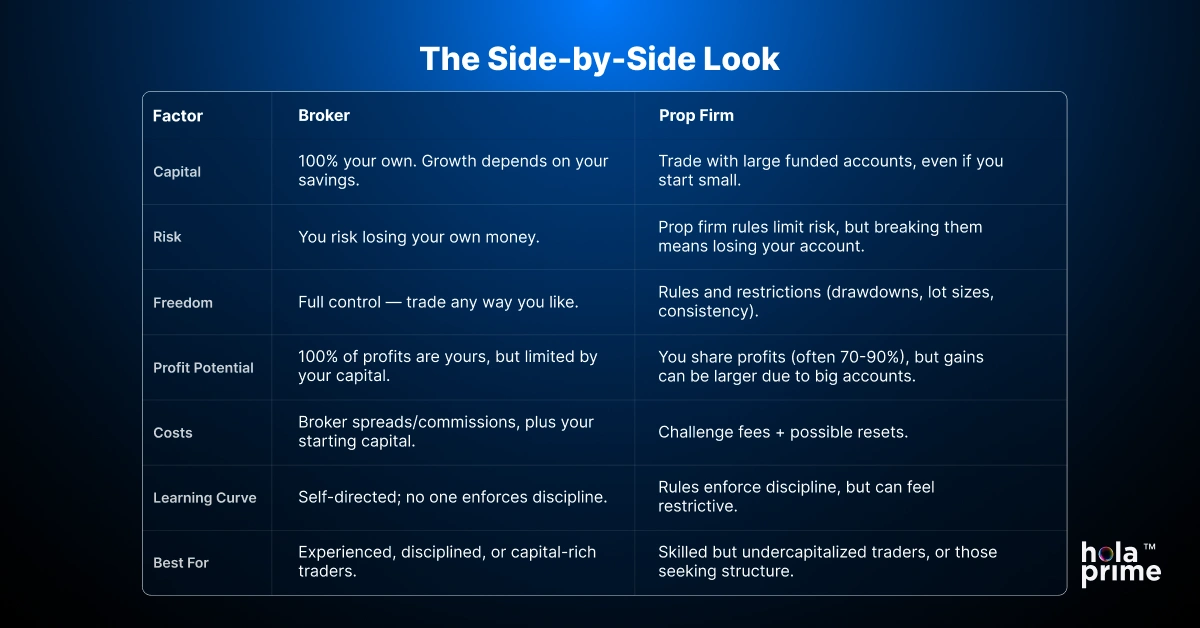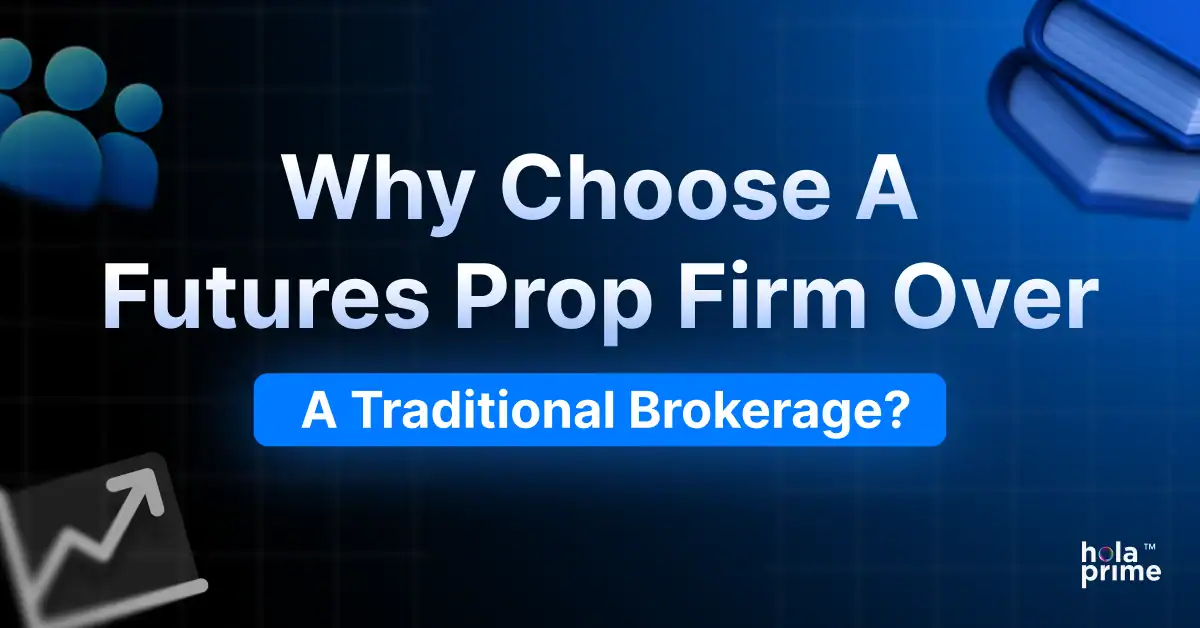We’ve gone deep into both worlds, explored the pros and cons, and even looked at who each path might suit best. But if you’re still sitting there wondering, “Okay, so what should I actually do?” — don’t worry. Let’s put it all side by side in a way that makes the choice clearer.

A Few Simple Questions to Ask Yourself
Instead of overthinking, try answering these honestly:
- Do I have enough personal savings to trade comfortably without panicking if I lose some?
- If yes, a broker could be the way.
- If no, a prop firm might let you scale faster.
- Am I disciplined enough to manage risk without external rules?
- If yes, brokers give you freedom.
- If no, prop firms’ rules might actually save you from yourself.
- Do I value independence more, or structure and accountability?
- Independence = broker.
- Structure = prop firm.
- Am I in this for slow, steady growth, or am I looking to accelerate results?
- Slow and steady = broker.
- Acceleration (with higher pressure) = prop firm.
The Big Truth Most Traders Don’t Realize
Here’s something no one tells you: you don’t actually have to choose one forever. Many successful traders use both. They keep a broker account for personal freedom and long-term growth while also running prop accounts to access more capital, diversify strategies, and test new approaches.
It’s not an “either-or.” It can be an “and.”
So, Which One Should You Pick First?
If you’re a newer trader with limited funds, start with a prop firm (but only after proving you can win consistently on demo).
If you’re more experienced or have savings you’re comfortable investing, stick with a broker first.
And if you’re serious about trading as a career? Consider doing both over time. That way, you’re not putting all your eggs in one basket.
11. Conclusion - The Road You Choose
By now, you’ve seen both sides of the debate: prop firm vs broker. You’ve walked through the numbers, the rules, the risks, and the opportunities. You’ve seen how one offers freedom while the other provides structure, how one demands capital while the other lends it, and how both paths can lead to success if you play them wisely.
But here’s the thing: at the end of the day, the decision isn’t about what’s “better.” It’s about what’s better for you.
Trading is personal. Your risk tolerance, your financial situation, your personality — all of that matters more than any checklist. Some traders thrive under the strict rules of a prop firm because it gives them guardrails to stay disciplined. Others feel suffocated by those same rules and would rather chart their own path with a broker, even if it means slower growth.
Neither path is wrong. Both are valid. What matters is choosing the one that matches where you are right now in your journey.
The Encouragement You Might Need
If you’ve been doubting yourself, let this sink in: the very fact that you’re here, researching, reading, and trying to understand the difference between a prop firm and a broker, already puts you ahead of the majority of traders. Most people dive in blind. You’re preparing. That’s powerful.
Remember, trading is not a sprint. It’s a long game. Whether you pick a broker, a prop firm, or both, your growth will come from consistency, discipline, and patience. The capital, the profits, the recognition, they’ll follow.
The Road Ahead
So, here’s your takeaway:
- If you want control, freedom, and independence, go with a broker.
- If you want scaling, funding, and discipline, go with a prop firm.
- If you want balance, don’t be afraid to do both.
Because in the end, the “right” road isn’t about the firm or the broker - it’s about you, your goals, and your willingness to keep learning.
So whichever door you walk through, walk with confidence. You’re not just choosing between a prop firm or a broker. You’re choosing the road to your trading future.
And that’s a choice worth making with both your head and your heart.


